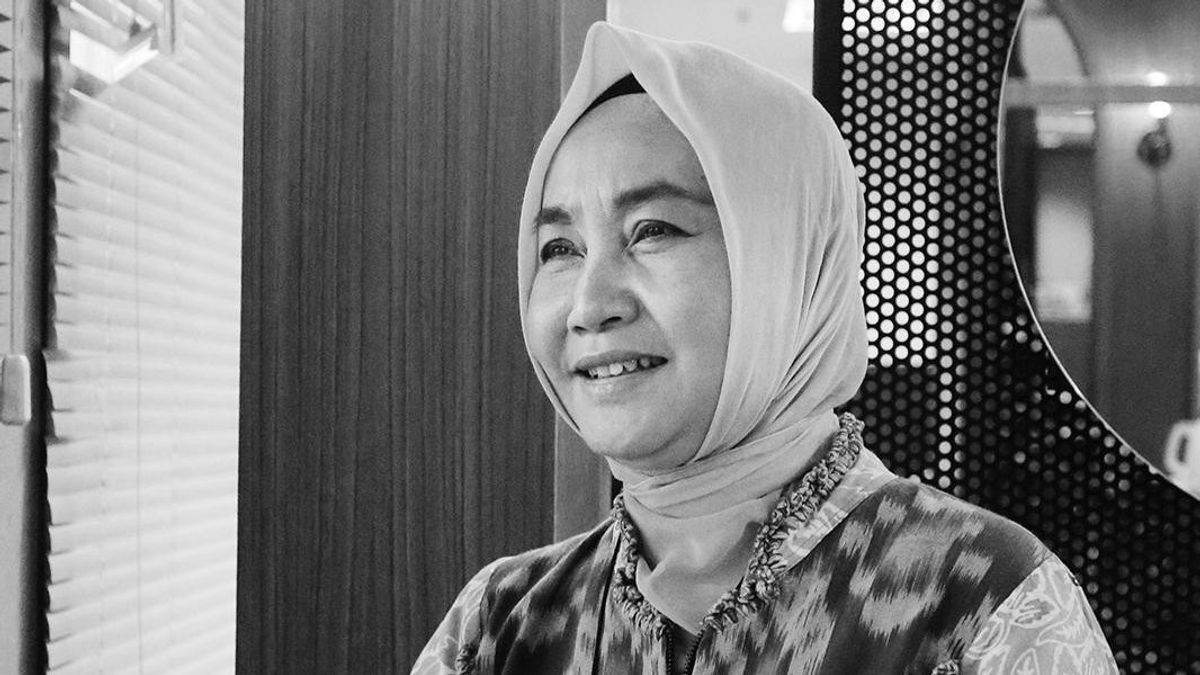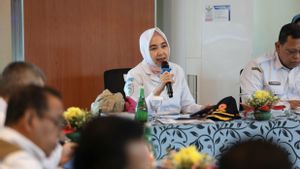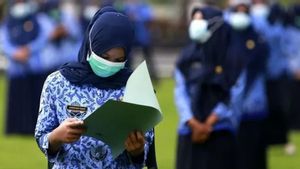JAKARTA - Head of the Meteorology, Climatology and Geophysics Agency (BMKG) Dwikorita Karnawati said that weather conditions in most parts of Indonesia on the eve of the turn of 2024 to 2025 are expected to be relatively conducive without any indication of significant extreme weather events.
According to him, the trend of extreme weather potential shows a decline compared to the previous weeks in December 2024. This is due to several factors, including the presence of a low pressure pattern in the South China Sea that blocks the flow of rain clouds from the Asian Monsun, cold surge, and the Northern Equatorial Cross Surge (CENS) into the western part of Indonesia.
In addition, he said, the Madden-Julian Oscillation (MJO) phenomenon which is not active in Indonesian territory and has begun to cool the sea level temperature anomaly in the waters around Indonesia has helped reduce the formation of local clouds that trigger heavy rains. This condition, according to Dwikorita, provides opportunities for people to celebrate New Year's Eve calmly. However, he reminded the importance of remaining alert to potential changes in atmospheric dynamics.
"Although the conditions of New Year's Eve are relatively safe from extreme weather, the public is advised to continue to monitor the latest information from the BMKG. atmospheric changes may occur, especially in areas that have a history prone to hydrometeorological disasters such as floods and landslides," he said at a press conference held in Jakarta on Tuesday, December 31.
SEE ALSO:
Dwikorita revealed that BMKG continues to monitor the dynamics of the atmosphere in real-time to provide early warning in the event of a significant change. BMKG also continues to coordinate with relevant agencies to ensure preparedness for potential extreme weather that can occur at any time.
Meanwhile, the Deputy for Meteorology of BMKG, Guswanto, said that based on the analysis of the latest atmospheric dynamics, several provincial capitals in Indonesia, such as Medan, Padang, Tanjung Pinang, Jambi, Pangkal Pinang, Jakarta, Bandung, Yogyakarta, Pontianak, Manado, Gorontalo, Makassar, Kendari, Palu, Ambon, Merauke, and Sorong are expected to experience sunny to cloudy weather on New Year's Eve.
Meanwhile, light to moderate rain is likely to occur in Banda Aceh, Pekanbaru, Palembang, Bengkulu, Bandar Lampung, Serang, Semarang, Surabaya, Denpasar, Mataram, Kupang, Palangkaraya, Samarinda, Tanjung Selor, Banjarmasin, Mamuju, Sofifi, Nabire, Wamena, Jayapura, and Manokwari.
This condition is expected to provide comfort for people celebrating the turn of the year, either by gathering with their families or attending activities in open spaces. In addition, the sea wave conditions in most Indonesian waters are expected to be in the low to moderate category towards the end of the year.
However, BMKG noted that the potential for waves is very high up to six meters in the North Natuna Sea and the Indian Ocean in the southern part of Java to NTB in early January 2025. Therefore, shipping actors, fishermen, and coastal communities are encouraged to increase awareness of the potential danger of high waves.
Guswanto added that entering January 2025, BMKG projects high rainfall (>150 mm/dasarian) to occur in a number of areas, such as parts of Banten, West Java, Central Java, South Sulawesi, and East Nusa Tenggara (NTT). This intense rainfall can trigger hydrometeorological disasters such as floods and landslides.
In addition, the central part of Papua also needs to increase vigilance because monthly rainfall in the region is predicted to reach more than 500 mm during January 2025. In the same period, the peak of the rainy season will also occur in several areas, such as Lampung, mostly Java, South Kalimantan, Sulawesi, and Papua.
Meanwhile, the Deputy for BMKG Weather Modification, Tri Handoko Seto revealed that the Weather Modification Operation has been carried out and is still being alerted as a step to mitigate hydrometeorological disasters and to support the smooth celebrations of Christmas and New Year (Nataru) 2024, especially in areas with high potential disasters, such as West Java, DKI Jakarta, Central Java, and East Java.
"Apart from disaster mitigation, this operation also supports community activities during the Christmas and New Year holidays," said Seto.
On this occasion, Dwikorita also submitted a number of recommendations for the community and local government. First, the community is advised to carry out New Year's Eve activities while still paying attention to local weather conditions. Second, always monitor information and early weather warnings through the official BMKG channel to ensure preparedness for dynamic weather changes. Third, local governments in areas prone to hydrometeorological disasters are expected to remain alert and strengthen mitigation coordination in order to anticipate the worst possibility.
Dwikorita also emphasized that early January was the peak period of the rainy season in several parts of Indonesia, such as Java, Lampung, South Kalimantan, Sulawesi, and Papua. With dynamic weather conditions, people are expected to continue to increase their awareness of potential extreme weather that could occur at any time.
"The change of year is a moment of happiness, and we hope that people can enjoy it in peace. However, don't be careless about the dynamics of the atmosphere that can change, especially after the New Year period," concluded BMKG Head Dwikorita Karnawati.
The English, Chinese, Japanese, Arabic, and French versions are automatically generated by the AI. So there may still be inaccuracies in translating, please always see Indonesian as our main language. (system supported by DigitalSiber.id)


















